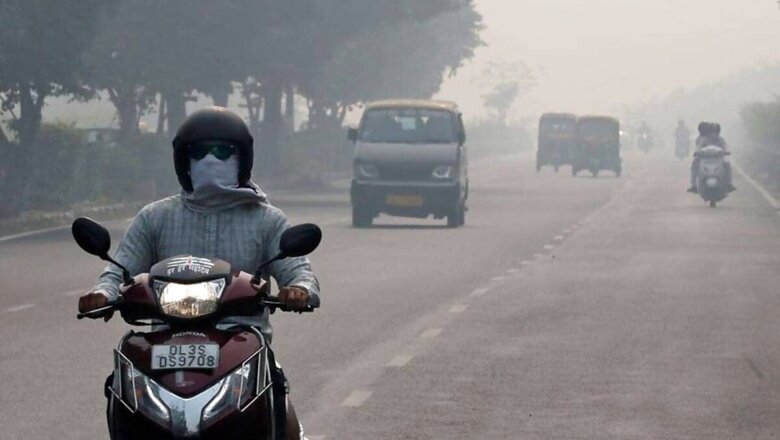
views
Smog is a type of air pollution that occurs in urban areas with a lot of population. The term smog was first coined in the year 1905 for the smoke and fog that had been plaguing London at the time.
Smog includes a lot of air pollutants that range from coal soot, emissions from industries and exhaust fumes. Most of the smog we see today is photochemical smog, which is generated when sunlight reacts with volatile compounds and nitrogen oxides (released from all the sources mentioned above) present in the air.
Ground-level ozone also forms when sunlight hits these chemicals in the air. Ozone may be helpful when it is present high in the atmosphere but at ground level, it can lead to lung damage, especially in those with asthma, emphysema and bronchitis. It can also irritate the eyes and nose and increase your susceptibility to infections.
Air quality index (AQI)
Air quality index is one way to monitor air pollution and smog in your area. As per the United States Environmental Protection Agency (EPA), an AQI between 0 and 50 is good, between 51 and 100 is moderate, 101 to 150 unhealthy for sensitive groups and 151 to 200 unhealthy. AQI between 201 and 300 is listed as very unhealthy and that between 301 and 500 as hazardous for health.
Protecting yourself from unhealthy air
The American Lung Association and the EPA recommend the following to keep yourself and your loved ones safe from the harmful effects of unhealthy air and air pollution:
- Keep tabs on the AQI in your areas. This will help you know when you need extra measures for your health.
- Do not work out near traffic areas even if the AQI is good. The fumes are likely still present in the area and can cause pollution up to one third a mile away.
- In the case of unhealthy AQI, do not work out outdoors at all. You can use a treadmill or other indoor equipment instead.
- Try to carpool or use public transportation whenever possible. To travel to nearby places you can walk or take a bike.
- If you have to take your car, combine errands so you can reduce the total number of trips.
- Avoid burning firewood or excessive use of products that run on gasoline to reduce pollution.
- Use energy-saving equipment as the generation of electricity causes air pollution.
- Refuelling your car in the evening (when it is cooler) can also help reduce air pollution.
Apart from this, you can also use masks while going outdoors to reduce your exposure to pollution.
For more information, read our article on Lung disease.
Health articles on News18 are written by myUpchar.com, India’s first and biggest resource for verified medical information. At myUpchar, researchers and journalists work with doctors to bring you information on all things health.
Read all the Latest News and Breaking News here




















Comments
0 comment